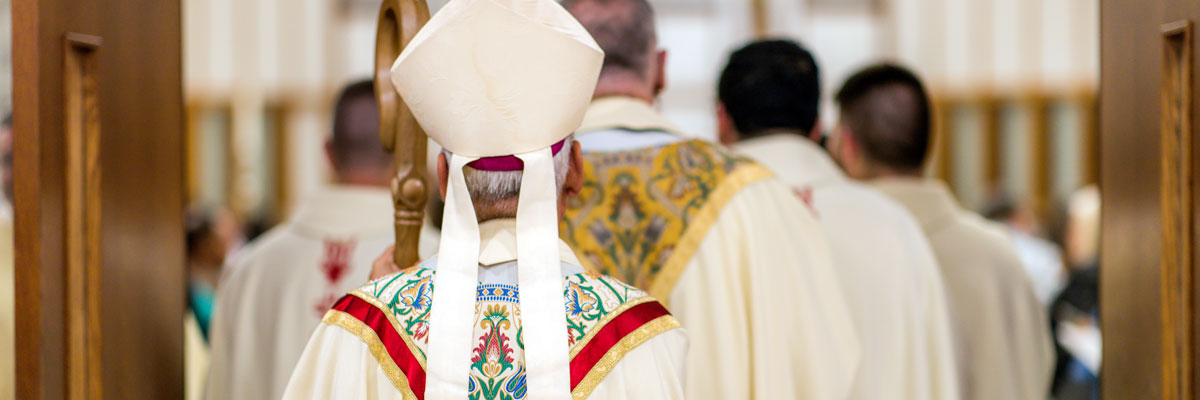Official Website of the
Catholic Diocese of Little Rock
Sixth Sunday of Easter, Year B
Published: May 10, 2015
Bishop Anthony B. Taylor preached the following homily on Mother’s Day at St. Mary Church in Ponca City, Okla. on Sunday, May 10, 2015.

Bishop Taylor
What do you think is the greatest commandment in the Bible? There are 613 commandments in the Old Testament: 248 positive commandments (do's) and 365 negative commandments (do not's). The most famous of which are the Ten Commandments. When they asked Jesus which were the greatest of these 613 commandments, he picked out two: Love God with all your heart, mind and soul, and love your neighbor as yourself.
But those aren't the greatest commandments in the Bible; they're just the greatest commandments in the Law, the Old Testament. Now with his death and resurrection, Jesus reveals to us a much more demanding commandment that far surpasses even the greatest expressions of human love: that we begin to love others more than we love ourselves, not merely as we love ourselves. In this way our love becomes more than merely human. It becomes divine, a means for God to touch the heart of another person.
That's what Jesus is talking about in today's Gospel when he gives us the greatest commandment in the Bible: "This is my commandment: love one another as I love you." And then he goes on to specify that this means loving others more than we love ourselves: "No one has greater love than this, to lay down one's life for one's friends."
Today we celebrate Mother's Day, and I can tell you that as a group, mothers have more to teach us about sacrificial love than almost anyone else on this planet.
At the beginning of our passage, Jesus makes it clear that sacrificial love characterizes not only the internal life of the Blessed Trinity, but also God's love for us: "As the Father loves me, so I love you." And then he goes on to insist that we are to love like that too. On Good Friday Jesus shows us that this is precisely how God loves us: completely, to the death. And on Easter Sunday we see the victory of this sacrificial love. It breaks the power of sin and death. Jesus' sacrificial love does this, and when united to him, so also does ours.
Today we celebrate Mother's Day, and I can tell you that as a group, mothers have more to teach us about sacrificial love than almost anyone else on this planet. There's something about bringing forth new life that develops in women a far greater capacity for death to self than they had ever experienced before. Nine months of physical discomfort, the pain and dangers of childbirth, the sleepless nights, the diapers and other messes, a totally dependent and helpless baby for which she would give her own life to protect.
She loves her child more than she loves herself. Even when she gets no love in return. Maybe especially when she gets no love in return. That kind of love, united to that of Jesus, can not only endure all the trials of raising the kid, it can take all the talking back and all the "I hate you's" of ignorant adolescents who are full of themselves.
And not just put up with them, but rather make them redemptive because by embracing the cross with sacrificial love, Jesus is using her to break the power of sin and death in her own family ... often eventually turning the most troublesome teenager into the most loyal and faithful adult.
And so we see in our own lives and in our mothers the true greatness of this greatest commandment in the Bible. "This is my commandment: love one another as I love you. No one has greater love than this, to lay down one's life for one's friends." Loving others more than we love ourselves: totally, sacrificially, to the death.









